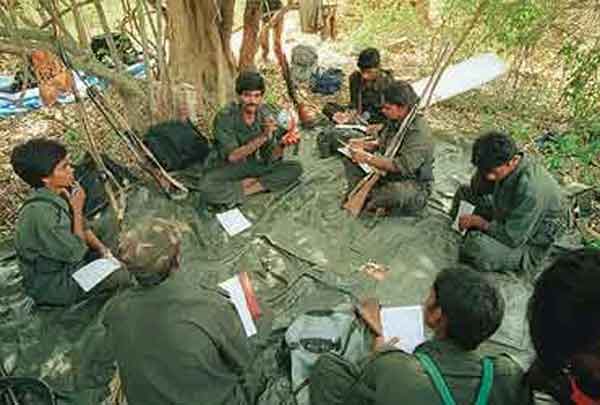IDR Blog
Blood trail in Red Corridor
The Maoist attack in Bastar on a Congress convoy was one of the more serious incidents. It has been variously described as attack on the nation, an attack on the very idea of India and a conspiracy. There is pressure on the state to strike back. The consequence of such hyperbole can lead to overreaction. What is required is a well-considered calibrated response. Suggestions to deal with the menace are flying thick and fast giving the impression as if it is something we have only recently encountered. Maoist have been active for a long time and over time spread their areas of operation into more than 240 districts which when grouped together have come to be known as the Red Corridor, running from Nepal border to down South.
MoH does not even know the difference between terrorism and insurgency. Gill’s expertise springs from his handling the Punjab problem. But Punjab was afflicted by terrorism and not insurgency.
Kiran Bedi’s advice is to have a Unified Command and post 50-60 specially selected IAS and IPS officers as DCs and SPs in these districts and give them four times their pay and they will solve the problem. India, inspite of most pressing need has not been able to create a ‘Unified Command’ of the defence services and to expect it to do so for the police, cutting across so many states appears a far cry. Bedi’s other suggestion implies that all the effected states do not have even 50-60 officers to do the needful and this four times the pay, we reckon is to refrain them from eating into funds meant for development work in these states! Ajit Doval another police officer finds the remedy in increasing the strength of state police, framing strong laws and gearing up the judiciary. An important element in this fight is intelligence, which continues to be poor and the agencies take the safe route of ‘crying wolf’ and if one of the information turns out to be true then the standard stance is, ‘ we told you.’
Ministry of Home Affairs finds great expertise in KPS Gill and dispatches him to the effected states to render advise on dealing with the ongoing insurgency. It only shows that the MoH does not even know the difference between terrorism and insurgency. Gill’s expertise springs from his handling the Punjab problem. But Punjab was afflicted by terrorism and not insurgency. In Punjab of those days the police dared not stir out of its barracks at night and the night belonged to the terrorists. It is only when the army was deployed and undertook extensive night patrolling that the terrorists lost freedom of the night, people gained confidence and information concerning terrorists started pouring in. The Vigilante Groups created by the police in Punjab, to combat terrorists, eventually became the second arm of terrorism. These indulged in extortion, kidnapping and killing. Some bad elements too joined in. In the Maoist effected states, the Salwa Judum is doing no different. MoH is undertaking recruitment of tribals from 26 worst effected districts as a strategy to fight Maoists! They will be given 6 weeks ‘induction training.’ A Salwa Judum of the government!
No two insurgencies are alike, because underlying causes are seldom the same. British handled insurgency in Malaya with complete success. When the Indian Army instead of picking up the relevant lessons, applied the exact template in Nagaland, it was a failure and it further complicated the problem. Defeat of the Sikh army ( by guile though ) and annexation of Punjab, left the populace of the province in a state of anger, alienation and extreme hostility towards the British. Lawlessness had set in. British turned around that hostility to loyalty within less than a decade. There are many useful lessons to be learnt from the handling of that situation. Law and order was restored, efficient administration was set up and simultaneously development work in way of creating the best canal system was taken in hand. Of the large number of officers selected to head the district administration and police, seventy percent were captains and majors from the army.
The Tribals, Adivasis and other down trodden of these states have had a rough deal. Mining barons have taken over their lands without adequate compensation and alternate avenues of work. In other cases forest rights have been forfeited. There are no worthwhile schools, hospitals, means of communication and employment opportunities. They have suffered decades of neglect. The pictures of the road on which this last incident took place does portray a sad story of the state of communications. There is no administration worth the name. Officers live under heavy security, don’t stir out of their houses, where they have set-up their offices. Corruption is rampant and endemic. All progress has bypassed these areas and there is extreme poverty. We created the breeding ground for Maoist movement to take root. Police is ill trained and poorly led. This convoy had, according to one newspaper an escort of 77 policemen (considered too little!) and soon their ammunition finished and yet not one Maoist was killed! A minister in Maharashtra claims that a VVIP while moving out requires an escort of over 550 policemen!






